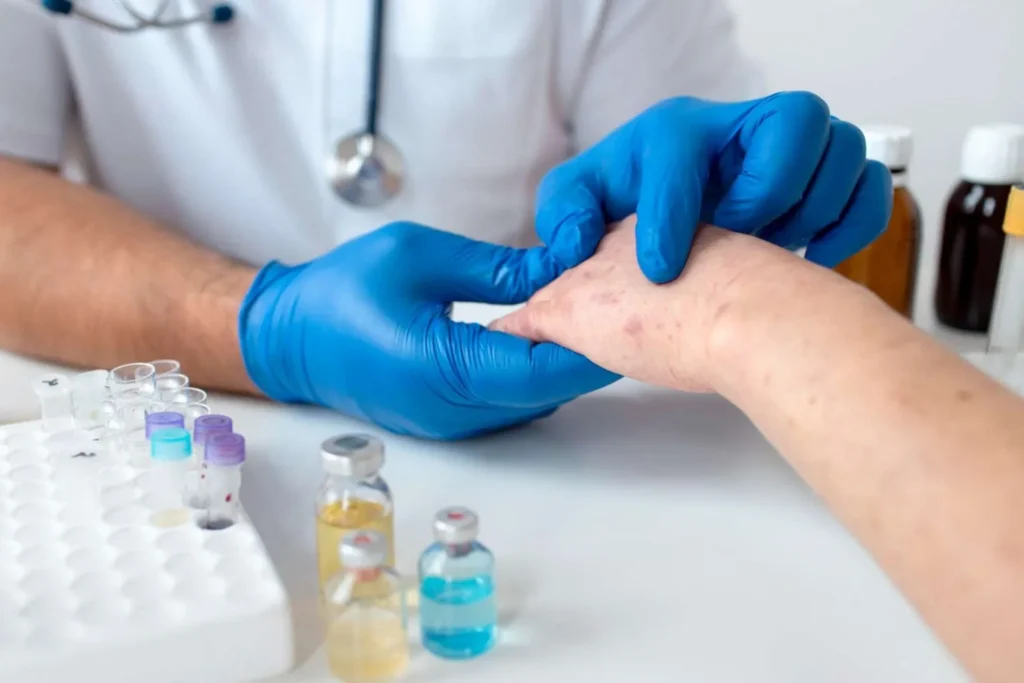Unmatched Excellence in the Best Fungal Infection Treatment in Delhi
Get unparalleled relief with our best fungal infection treatment in Delhi, where excellence meets care. We understand the discomfort and distress associated with fungal infections. Also, you can book our consultation to get relief from this infection.
Best Clinic for Skin Fungal Infection Treatment in Delhi
House of Aesthetics with a reputation for delivering the best skin fungal infection treatment in Delhi. Our specialist Dr. Neha Khuraana is well-versed in the latest advancements in dermatology, offering cutting-edge treatments that cater to unique skin types. We don’t just offer treatment; we create an experience that wraps you in confidence and reassurance.
Fungal infections, caused by various types of fungi, are a common occurrence affecting the skin, nails, or internal organs. They manifest in diverse ways, from mild rashes to severe health complications. Understanding their types, causes, and treatment is essential in managing and preventing these infections.

Types of Fungal Infection
- Superficial Fungal Infections: Affect skin, nails, and mucous membranes like mouth and vagina. Examples include ringworm, onychomycosis, candidiasis, and tinea versicolor/pityriasis versicolor.
- Subcutaneous Fungal Infections: Occur beneath the skin due to cuts or wounds, common in tropical areas. Conditions like sporotrichosis, chromoblastomycosis, and eumycetoma fall under this category.
- Deep Fungal Infections: Found internally, affecting areas like lungs, blood, urinary tract, or brain. Conditions include histoplasmosis, coccidioidomycosis, blastomycosis, aspergillosis, candidal UTI, invasive candidiasis, PJP, mucormycosis, and cryptococcosis.
Causes of Fungal Infection

Contagious
Direct spread from an infected person and surface

Environment
Thrive in warm & moist environment

Poor Hygiene

Weakened Immunity
Due to certain medications or medical conditions

Shared Towel/clothing
Treatment of Fungal Infection
Treatment for fungal skin infections typically involves antifungal medications available in various forms such as creams, ointments, or oral medications. Topical antifungal creams or ointments are often the first line of treatment for mild to moderate infections. For more severe or widespread cases, systemic antifungal drugs, which are taken orally, may be necessary. It’s important to complete the full course of medication as prescribed by a healthcare professional even if symptoms seem to improve earlier.
Frequently Asked Questions
Natural remedies like tea tree oil or coconut oil have shown some antifungal properties. However, they might not work for all types or severities of fungal infections. Consult a healthcare professional for appropriate treatment.
Yes, certain fungal infections like ringworm can be transmitted from pets to humans and vice versa. Regular pet check-ups and maintaining hygiene around pets can reduce this risk.
While individuals with weakened immune systems are more susceptible, fungal infections can affect anyone. Maintaining good hygiene and avoiding factors that promote fungal growth are essential for prevention.
+91-8076372929
info@hoadelhi.in
10:30 am to 8:00 pm
Wednesday off


